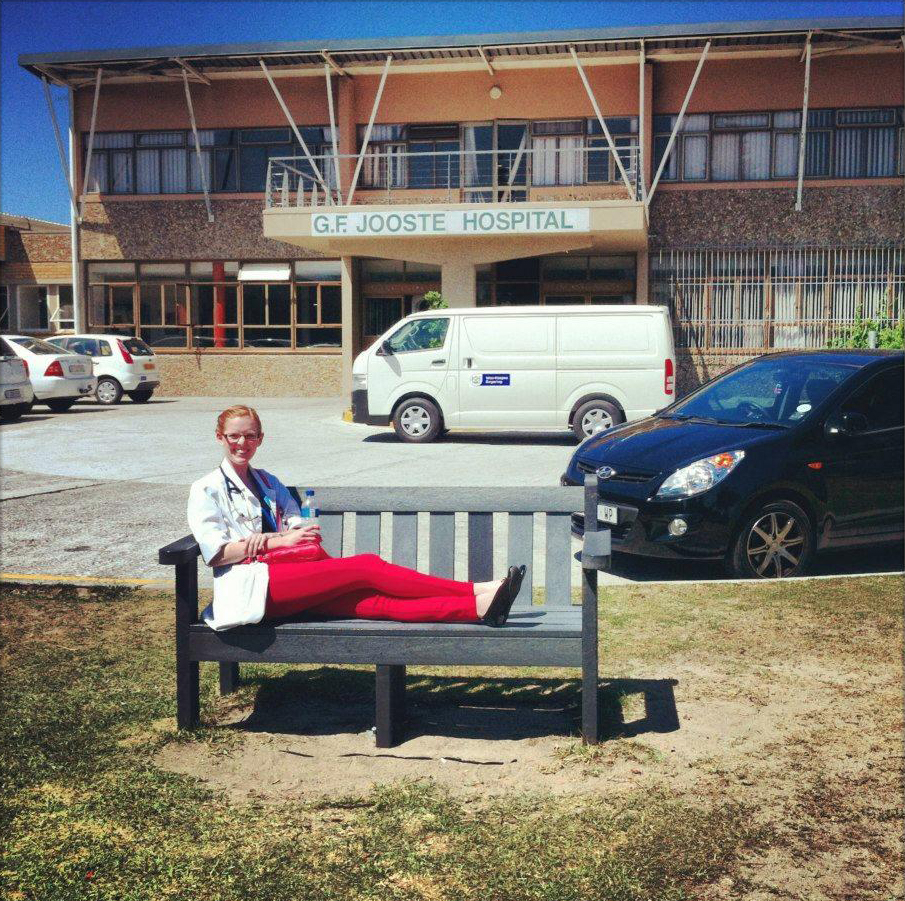UK Student Reflects on Medical Rotation in South Africa
As one University of Kentucky graduate prepared to leave campus, she reflected on one of her favorite experiences during her eight years at UK — traveling to South Africa on a medical rotation.
UK College of Medicine student Elaine Patterson was accustomed to studying abroad, having traveled to Ecuador and Denmark while in college. However, there was one other place she had always wanted to see.
“I was interested in South Africa because my grandmother was born in Swaziland, and her parents were missionaries there," Patterson said. "So I’ve wanted to go to South Africa and see what the area was like.”
When an opportunity to study family medicine in South Africa arose through the Child Family Health International (CFHI) program, Patterson took the leap.
“The program helps medical students receive experience in places around the world that really need medical assistance, like South Africa,” Patterson said.
Medical rotations are four-week blocks of on-site training during which medical students experience specific parts of the hospital. Rotations include surgical procedures, emergency room and internal medicine.
Patterson primarily worked in a community hospital in Athlone, a district just outside of Cape Town. There, she chose to work in her specialty of internal medicine, which allowed her to explore various aspects of the hospital environment.
“I worked in the public sector in an observational capacity, so I spent a lot of time in a public hospital that served a rural community — simply observing how the hospital operated and what went on there,” Patterson said.
As a student, one of Patterson’s goals was to closely examine South Africa’s health care system and understand how it differs from that of the U.S. One thing that struck her was the larger roles that medical students and residents play in South Africa.
“The medical students have a much more hands-on role there,” Patterson said. “They don’t have the technology that we do here in the U.S., but they know everything about the equipment they have and are really conscious about the patient and how much each additional procedure will cost the patient, because in most cases they don’t have the best health insurance.”
Patterson also noted the dichotomy of health care in South Africa, divided into public and private sectors.
“The private sector gets the majority of the doctors, but only those with excellent insurance can afford to visit them, so their physician density is incredibly low in the public sector,” Patterson said.
Her experience in South Africa led Patterson to realize that the only way to truly learn about another country is to experience it firsthand.
“I think seeing their health care system up close and being in the hospital seeing everything for myself allowed me to better understand how it works and what makes it different from ours,” Patterson said. “And I don’t think I could have gotten that same experience in a classroom.”
Though Apartheid was abolished, South Africa still faces a huge socioeconomic gap between the wealthy and the poor. Experiencing a new culture and seeing that gap firsthand stands out as one of Patterson’s favorite experiences outside the hospital. During her stay, Patterson saw some of the poorest districts of South Africa—districts still struggling with basic services like waste management and hygiene.
For Patterson, seeing those areas was one of the most humbling parts of her time abroad. It allowed her to understand the intricacies of the South African culture.
“If I was just there as a tourist, I wouldn’t have understood so much about their culture and how Apartheid still manifests itself throughout their society,” Patterson said.
Living and learning abroad is an experience Patterson believes everyone should have; she hopes her story encourages more people to take a similar leap.
“I feel like when you immerse yourself in a culture, you get to experience it in a completely new perspective,” she said, “You can’t get that in a classroom or as a tourist. You have to go out and experience it for yourself.”
MEDIA CONTACT: Sarah Geegan, (859) 257-5365; sarah.geegan@uky.edu
